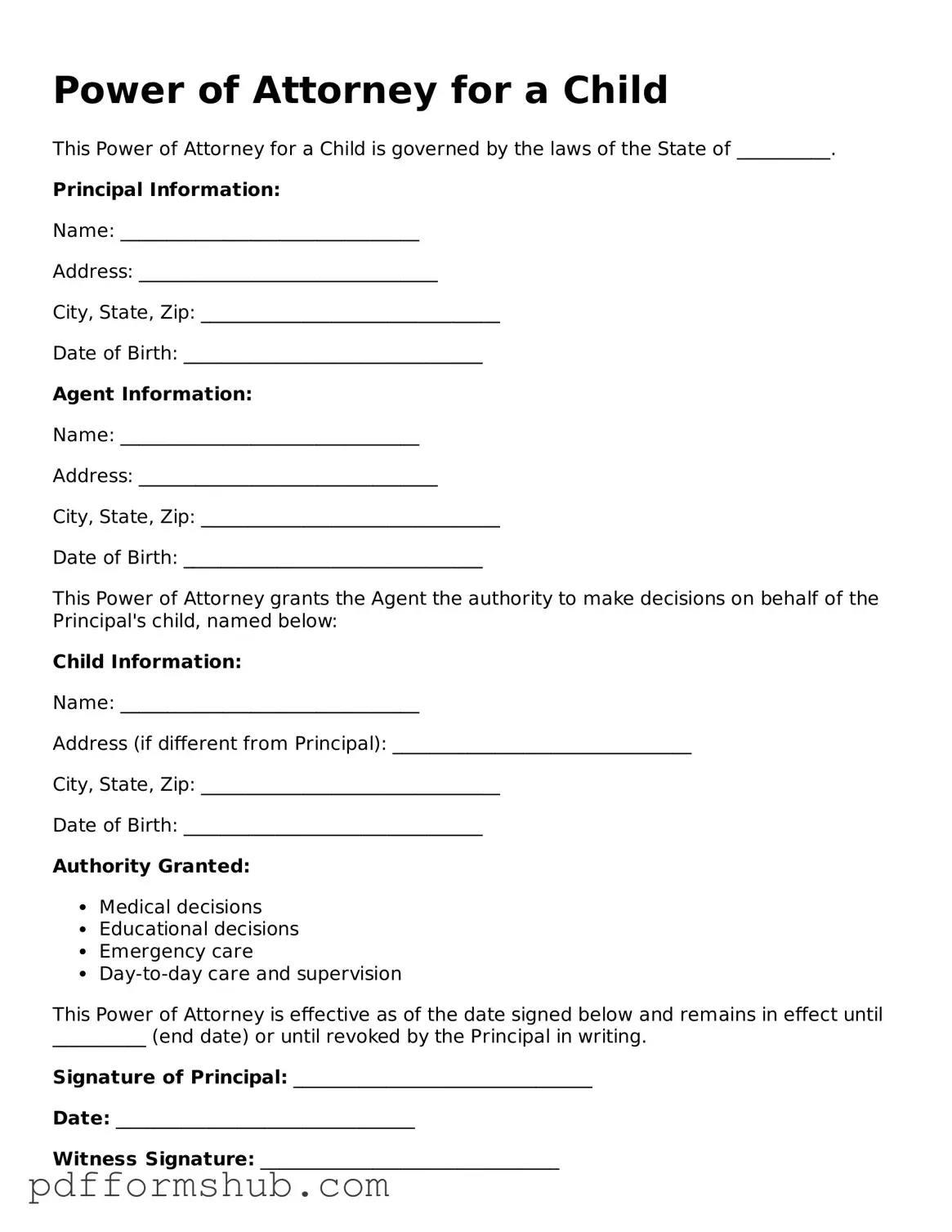Valid Power of Attorney for a Child Form
The Power of Attorney for a Child form is a legal document that allows a parent or guardian to grant another adult the authority to make decisions on behalf of their child. This can include matters related to education, healthcare, and general welfare. Understanding the importance of this form is crucial for ensuring that your child's needs are met, especially in your absence.
To take action and fill out the form, please click the button below.
Customize Form

Valid Power of Attorney for a Child Form
Customize Form

Customize Form
or
Free PDF Form
Short deadline? Complete this form now
Complete Power of Attorney for a Child online without printing hassles.